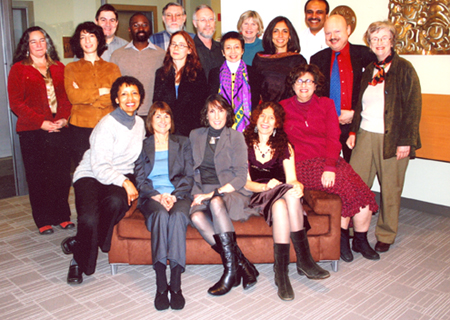As a discipline, anthropology has pursued many paths toward an engaged approach over the past two decades. These avenues include: 1) locating anthropology at the center of the public policy-making process (public policy advocacy), 2) connecting the academic part of the discipline with the wider world of social problems (public anthropology), 3) bringing anthropological knowledge to the media’s attention (media anthropology), 4) becoming activists concerned with social change (social activism), 5) sharing knowledge production and power with community members (community empowerment), 6) providing empirical approaches to social assessment and ethical practice (ethics), and 7) linking anthropological theory and practice to create new solutions (practicing anthropology). These are all important initiatives but do not address the role of anthropology as social critic. Although the discipline has a long and rich history of commenting on modern society and its foibles, this activity now languishes.
Anthropologists have a proud history of speaking out against racism, war, neglect of the rights of workers, and the oppression of women, to give some examples. Contemporary anthropological knowledge has a great deal to contribute to understanding violence, contemporary conflict ideas of race and racism, and human rights. Our theories enable trenchant critiques of global capitalism, nationalism and ethnic conflict, militarism, and the use of women as silent bearers of national tradition. Our core concept, culture, is on everyone’s lips, but its meanings are often colonial era representations of primitiveness rather than anthropologically-based visions of meaning and practice. In some parts of the world, anthropological knowledge is more widely sought for public debate and more highly valued than it is in the US.
Yet, reclaiming this role requires rethinking anthropology in the modern world. For a number of years the discipline, particularly in the US, has not engaged with ethical issues such as human rights or global inequality. For example, anthropologists refused to support human rights as a social justice ideology for many years, both because they feared its similarity to the universalizing ideologies of colonialism and Christian missions and because they viewed themselves as social scientists who were unable to make moral judgments about the normative structures of other societies. One of the most critical and unresolved issues in the discipline is how anthropologists can make ethical judgments while at the same time developing soundly-based theoretical analyses and producing new anthropological knowledge. Related concerns also include the way academic institutions define and reward scholarship and the kind of public face that the discipline holds.
We proposed to organize a conference that considers three dimensions of anthropology’s diminished role as social critic: 1) the past role of the field as a public voice of critique; 2) the situation in countries where anthropology now has a larger presence as social critic; and 3) intellectual and theoretical barriers to developing a more engaged and socially critical anthropology as well as strategies to promote such endeavors. For example, academic institutions could encourage and reward this kind of work, while anthropologists engaged in practice or advocacy, such as those who work for human rights organizations or other non-governmental organizations, could be encouraged to participate in annual meetings and to write about their work for AAA publications.
From an intellectual perspective, the field has never been stronger or more vibrant. On the other hand, it is insufficiently recognized and valued by the wider public. Its insights and perspectives deserve more attention. In part, anthropology’s insistence on specificity and context contradicts the universalizing tendencies of popular theories in economics and political science. Yet we have also undervalued the role of social critic in the institutional structure of rewards and failed to support the people who do this work sufficiently. We have made a lot of progress in other areas of anthropological engagement, such as in the spheres of policy and practice, but need to address anthropology’s role as social critic with similar seriousness and commitment.
